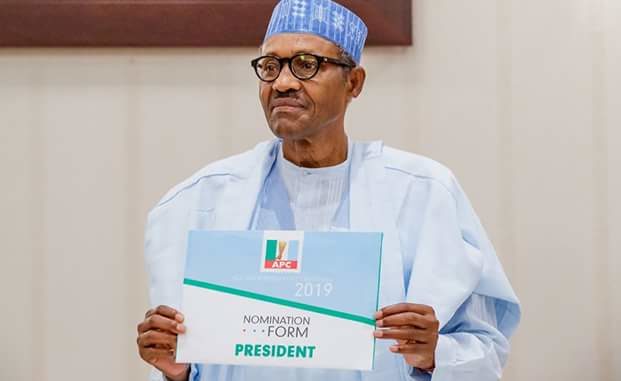
The Economist Intelligence Unit (EIU), the research unit of The Economist Magazine, has predicted that the opposition Peoples Democratic Party (PDP) will defeat the ruling All Progressives Congress (APC) candidate in the upcoming 2019 presidential election.
EIU stated this in its latest country forecast overview on Nigeria which was made public on Tuesday.
The EIU, which gave an array of reasons for its prediction, said even though it would be a close call, the opposition PDP would win the election.
It predicted slowdown in economic activities in Nigeria as politics takes centre stage.
The London-based magazine, which also anticipated a depreciation of the naira, said further in its assessment that Buhari was fast shedding support from within the APC with governors and lawmakers defecting to the opposition en masse.
“Intra-party politics would be chaotic ahead of the poll and we ultimately expect the incumbent to lose power.
“The 2019 elections will be a close contest between the ruling APC and the PDP. We expect the PDP presidential candidate to win, but for the next administration to flounder against the same problems as the incumbent one.
“The next government is likely to be led by the PDP, the main opposition, potentially in a coalition with smaller parties, but instability will remain an insoluble challenge.
“Internally, not all ambitious politicians from the APC who have defected will be rewarded with places in the next government; or if they are, it will mean that pre-existing grandees within the PDP will have been sidelined.
“Whoever ends up feeling cheated will eventually turn on the new administration, as is happening to the APC now. There is also a unifying PDP presidential candidate, with around 16 aspirants competing for the nomination.
“A weak APC before the election and a troubled government thereafter implies that Nigeria’s manifold security threats will continue to fester.
“Parliamentary rifts will remain the main problem, and this applies no matter who is in charge, given competing priorities between representatives from different regions and the absence of a common ideology within parties,” it said.
Continuing, it noted that “policy reforms, particularly in the vital oil industry would be slow as a result of division in the political elite between advocates of tough, unpopular market reforms and those who refer pandering to nationalistic and pro-subsidy interest groups. The latter group was likely to remain in the ascendancy.”
According to the EIU, politicisation of economic policy would also slow reforms and at times actively decelerate economic growth.
“The Central Bank of Nigeria will not act completely independently, and the overall policy agenda will be pulled in differing directions by various powerful interest groups,” the report stated.
“Fiscal expenditure will remain dominant by recurrent spending despite attempts to boost capital investments. Efforts to boost non-oil tax revenue will be constraint by weak bureaucratic capacity and low economic growth. Constrained by a crippling infrastructure deficit, economic growth will be well beneath level needed to boost job creation and increasing living standard.
“Inflation will generally remain high over the forecast period (2018-2022) amid expansionary fiscal policy and high food prices stemming from government efforts to limit import and support local producers.
“The authorities will continue to interfere in the foreign exchange market although the degree of interference should eventually lessen with higher oil prices supporting reserves and broad economic confidence slowly improving. The naira will nonetheless depreciate over 2019-21 and be broadly stable in 2022,” the report explained.
Furthermore, the EIU held the view that Nigeria’s current account would record marginal gain over the forecasts period, saying pick-up in oil prices would be offset by recovering import demand.
The difficult business environment will restrict the development of non-oil exports, it added.
The report further pointed out that without a collective resolve, it would prove impossible to bring permanent peace to the large parts of Nigeria hit variously by an Islamist insurgency in the north, ethno-nationalism and piracy in the main oil-producing region and secessionism in the Biafra region, as well as inter-religious tensions and disputes over land access across the centre of the country.
“It will prove hard to build a more effective security apparatus while also creating economic opportunities for local populations; poverty lies at the root of much of the instability.
“Our central forecast is, however, that the 2019 elections will be completed without a widespread breakdown in stability with Nigeria’s democracy proving once again to be robust enough to endure.
“However, we expect major unrest to continue in 2020-2022 as comprehensive solutions prove too complex and costly to implement in the medium term.”
It noted that given the severe risks to stability, speculation over the threat of a military coup or a civil war was likely to surface periodically.
It stated, “That these issues are part of the popular discourse highlights the seriousness of the challenges facing Nigeria, but we consider a widespread breakdown of security to be unlikely; the military is more professional and has been depoliticised since the junta stepped aside in 1999.
“Meanwhile, there is little appetite outside more extremists’ agitators for a return to civil war, given memories of how disastrous the 1967-1970 conflict was for the country.
“Nevertheless, as the country’s leadership struggles to shift Nigeria onto a more sustainable and robust pat of economic development, the risks to stability will intensify as more and more Nigerians question what they have to lose from pushing for violent change.”